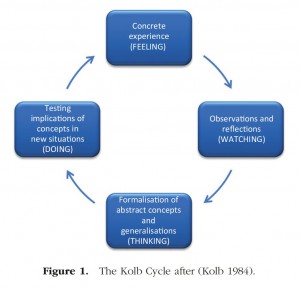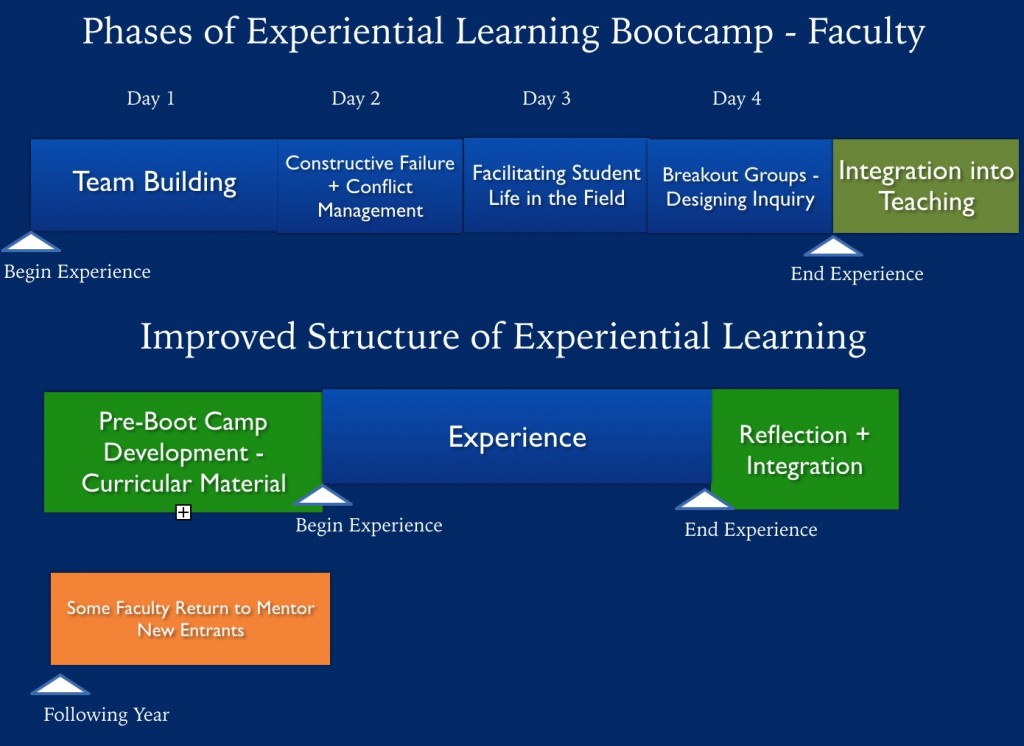During the June Yale meeting we designed the time so that it was split into two stages. The first stage was the Symposium, on June 6-7, which was two days of thought-provoking speeches and panels with some good questions afterwards. The second stage, from June 8-9, was what we called the Workshop – and in this phase we constructed six working groups to tackle some of the most urgent questions facing higher education.
These questions were written by Charles Bailyn, Yale-NUS Dean, after a series of meetings in which he and I brainstormed and narrowed down the questions. The questions that emerged formed the basis for two days of in-depth discussions. Each working group had 6-8 members, and we met for several hours in the rooms of Betts House and the Greenberg Center at Yale University. These rooms were the same ones used for designing the Yale-NUS curriculum in our original workshops from 2012-13. For those of us in the “inaugural faculty” revisiting this site and conducting the same types of discussion was very nostalgic!
It was also a very nice feature of the Yale Conference to have both they Symposium and Workshop. This second stage was extremely interesting and interactive, and allowed for free-ranging conversation and discussion that brought out many exciting new ideas. The working groups also formed stronger relationships and outlined proposals that can provide long-lasting impacts after the June Yale Conference.
My working group was discussing experiential learning. Our group consisted of these members:
- Susan Jackson (Boston University)
- James Ketterer (Bard)
- Richard Kraince (Antioch College)
- Bert Lott (Vassar)
- Laura Marcus (Stanford + Arete Project)
- Jacob Park (Green Mountain)
- Bryan Penprase (Yale-NUS)
- Neelima Shukla-Bhatt (Wellesley)
- Jennifer Sheridan (Yale-NUS)
An excerpt from our report from the workshop is below, and the complete set of questions posed to each of the working groups is also below.
Excerpt from our Experiential Learning working group:
Each of the educators described their efforts in developing and implementing experiential learning as well as the context of experiential learning in their institutions. These institutions represent the complete range of durations of experiential learning in liberal arts settings, ranging from the 1-week “Week 7” experiential learning course at Yale-NUS College, to Deep Springs College where its 26 students live together for two years in a remote cattle range. Other options within the group include a range of urban, domestic and international experiential learning settings, all with various degrees of articulation within the liberal arts curriculum.
Our group also identified that many of their programs were either under development or lacked sufficient structure for preparing students for the experience, or integrating the experience of the students back into the curriculum after the experience. For this discussion we also referred to the Kolb Experiential Learning Cycle (Kolb, 1984, Kolb and Kolb, 2005), which provides a useful framework for structuring experiential learning into phases of abstraction, hypothesis testing, experience, and reflection.
Figure 1 – Illustration of the Kolb Experiential Learning Cycle from Taylor and Hamdy (2013)
After discussing the Kolb Cycle, it was recognized that various of the efforts in experiential learning had reached some but not all of the four stages of the cycle. Some also noted that additional elements beyond the Kolb Cycle might facilitate learning. This included an initial “deep immersion” – which can induce confusion in students, which perhaps is helpful in both pushing them outside their comfort zones, and causing a strong incentive to regain orientation through learning. It also included the necessity in many experiential learning contexts to negotiate tasks, and to create something like a self-government among the students within the experiential learning environment. The group felt that these elements were important parts of the experience, and should somehow be established within the design of an experiential learning exercise.
…
Proposal – Developing an Experiential Learning Curriculum and “Boot Camp”
Our solution to these problems is to create an experiential learning curriculum that gives a solid foundation into all aspects of working with students in field settings. The curriculum would include the following elements:
- Reintegration into Home Campus
- Facilitation/Conflict Resolution
- Reflection/Syllabus Planning
- Discipline Based Content and Inquiry
- Developing Learning Goals/Outcomes
- Evaluation/Assessment of Student Learning
- Managing Student Diversity
- Sex, Drugs and Alcohol
- Student Leadership/Mentorship Development
These elements could be conveyed to faculty in the form of an Experiential Learning “boot camp” that could be a 4-5 day immersion into experiential education. The faculty themselves would be formed into teams and placed in an unfamiliar environment, and in grappling with the issues that students face in such settings would gain profound insights into the process they are going to be leading. After 1-2 days of immersion, the faculty participating in the “boot camp” would have a chance to debrief and then launch into a discussion with the instructors of the theory and background elements for a successful experiential learning program or project. The basic structure of our “boot camp” is shown below in Figure 3.
Complete set of Questions and Goals for Working Groups at the GLA Workshop, June 8-9, Yale University
- What are the most promising directions for a globalized humanities curriculum in the United States? Two traditional approaches to the humanities curriculum in liberal arts settings have been “western civ” core curricula on the one hand, and a purely distributional system with no specific requirements on the other hand. The recent rise of liberal arts colleges in Asia has prompted exploration of centralized curricula that include works from around the globe in a structured manner, while there are calls in the US for “ethnic studies” requirements that are in many cases focused primarily on the American experience. There are also more general pedagogical questions of how reading and studying of complex texts from many cultures should be taught and studied. This working group will consider the structure and pedagogy of introductory humanities curricula, and how global elements can most effectively be introduced in an American context.
- What is the role of the creative arts in a liberal arts curriculum? Creative writing and the visual and performing arts are a mainstay of life in residential liberal arts colleges. But the arts are often practiced by students in an extra-curricular context that is disconnected from the curriculum, and while history and criticism of art has a strong the place in the curriculum, the status of courses in the practice of art varies considerably between institutions. This working group will explore the connections between extra-curricular and curricular arts opportunities, and the place of courses in the practice and production of the arts within the context of liberal arts colleges.
- Should discipline-based introductory courses be supplemented or replaced by “problem-based” or interdisciplinary courses? Discipline-based introductory surveys are the mainstays of introductory instruction in the social and natural sciences in many liberal arts settings. Introductions to such disciplines as Biology, Chemistry, Economics, Physics, Political Science and Psychology are among the most popular courses on many campuses. But this approach tends toward disciplinary silos, and privileges the theoretical underpinnings of the disciplines over the consideration of complex interdisciplinary problems that are of great practical and intellectual importance, and that are exciting to many students. There has thus arisen considerable interest in courses or course exercises based on addressing problems that arise in contemporary life and in research from the perspective of a variety of disciplines. This working group will explore the possibilities and challenges in using interdisciplinary and problem-based instruction at introductory and intermediate level.
- What skills should all 21st century college graduates have, and how can we ensure that they have them? The skill set that a well-educated citizen should have in the 21st century is dauntingly extensive. To cope with the daunting challenges of contemporary life, our graduates need to be adept in written, oral and visual communication; quantitative reasoning and coding; rhetoric and argumentation. All these and more will be needed to empower graduates to be responsive and effective citizens and leaders. These skills can be taught in courses designed specifically for training in one or two skills, or can be integrated into a sequence of multiple courses across many disciplines. There are also serious issues that arise from the large range of preparation students bring with them from their previous education. This working group will consider how best to identify, teach and assess the most important 21st century skills in a contemporary liberal arts curriculum.
- What can and should “experiential learning” contribute to a liberal arts education? Off-campus experiential learning experiences can provide a critically important component of a liberal arts education. They can inspire both students and faculty, bring together students and faculty with the local and global community, and provide critical contacts for future student internships and employment. However such experiences can be difficult to organize, and are sometimes thought to lack intellectual rigor. This working group will study how to create and sustain positive, intellectually rigorous experiential learning for students, and to align these experiences with academic learning outcomes and the on-campus curriculum.
- What are the best approaches to the challenges and opportunities presented by an increasingly diverse multi-national faculty and student body? One of the crucial concerns at any residential colleges in the 21st century is using the increasing levels of student and faculty diversity (along many axes) in positive ways. The increasing socioeconomic and racial diversity on campuses provides many exciting new opportunities for learning, but several challenges as well; especially in cases where students have diverse preparation for academic work. One important aspect of diversity in the College and University campus is the increasing presence of international students. While “diversity” is defined differently in different national and cultural settings, the challenges are often surprisingly familiar. This working group will explore the challenges and opportunities presented by increasingly diverse cohorts of students, including the rising numbers of international students on residential college campuses, and how to ensure that this diversity is a source of inspiration and learning, rather than a source of conflict for our communities.
- How can best practices of “active learning” and classroom technology be spread among the faculty? Over the past few decades there has been considerable scholarly work documenting the gains in student learning from active learning. This work has caused many instructors to significantly change their teaching strategies. In some cases new technologies are being deployed to increase engagement and active learning in the classroom, or to create hybrid and “flipped” classrooms with online tutorials, quizzes and lectures. But active learning techniques can be challenging to implement, and are sometimes resisted by faculty members who either lack the skills or the time to implement these techniques effectively, or who are suspicious of new pedagogies and technologies. This working group will consider the most promising routes toward helping faculty members adopt and successfully use promising new pedagogical approaches in active learning.



